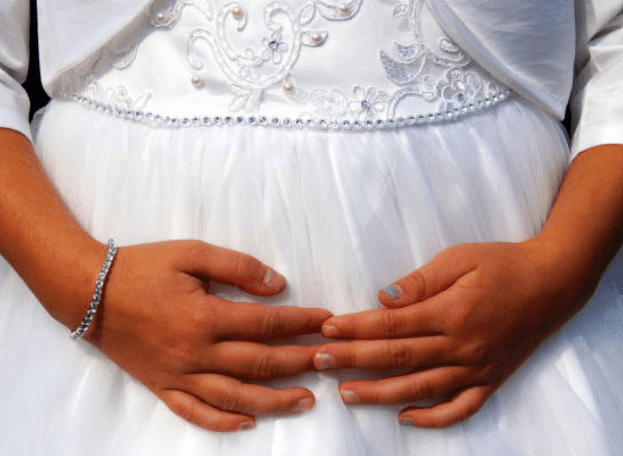A new phenomenon is emerging in uMzimkhulu, a predominantly rural village situated on the foothills of Drakensberg Mountains in KwaZulu-Natal, where older men hunt in packs scouting impoverished young girls to adopt before forcing them to wed.
The girls are allegedly raised in the homes of the men until they come of age upon which they are married to an elder son of the family.
Sunday World spoke to some parents who said it is widely accepted in the community that instead of young girls becoming victims of teenage pregnancy, which is rife in the rural area, they are encouraged to marry young.
“What do you do when your child has prospects to escape poverty and make a better life for herself,” explained one community member Nokukhanya Nzama.
“It’s not always bad because as they grow older, the head of the household will negotiate lobola and the girl can officially be married to his son.
“The only practice we are against is where they are forced to marry older people, but with their peers, we do not have a problem.
“The only condition is that the girl should be allowed to continue with schooling once in their adopted home.”
Another parent, who did not want to be named, conceded that although the practice is undesirable, economic hardships have compelled single parents to offer their daughters to these families.
“As an unemployed single woman, death always lingers in my mind. I think about who will fend for my daughter when I’m gone. At least if I give her to a well-off family, somehow her future would be secured,” she said.
While it is not often reported, child marriages are a global crisis cutting across all religious and cultural groupings.
Niger is known for having the highest rate of child marriages globally standing at 78% of girls who are forced to marry before they reach 18 years.
In China, such traditional practices are rife under the Shim-Pua marriage.
A future husband’s family adopts a pre-adolescent girl who in turn is married off to a pre-adolescent boy within the family.
Mhlabunzima Memela, provincial social development spokesperson, said recent reports in uMzimkhulu underscore the gravity of the situation in area.
“The chilling consequences of forceful marriages extend far beyond the immediate suffering of these young girls,” said Memela.
“These are innocent victims who are callously traded for short-term gains, as arrangements for such marriages tarnish their potential and aspirations.”
In recent weeks, Sunday World reported on how matric pupils at Zwelinzima Senior Secondary also in UMzimkhulu are forced to study while looking over their shoulders because they are concerned about horse-riding thugs.
The thugs are said to kidnap and force them to marry them under the pretext of the traditional ukuthwala practice.
According to Statistics SA data, between 2021 and 2022 there were more than 200 child marriages in the country.
Follow @SundayWorldZA on Twitter and @sundayworldza on Instagram, or like our Facebook Page, Sunday World, by clicking here for the latest breaking news in South Africa.



